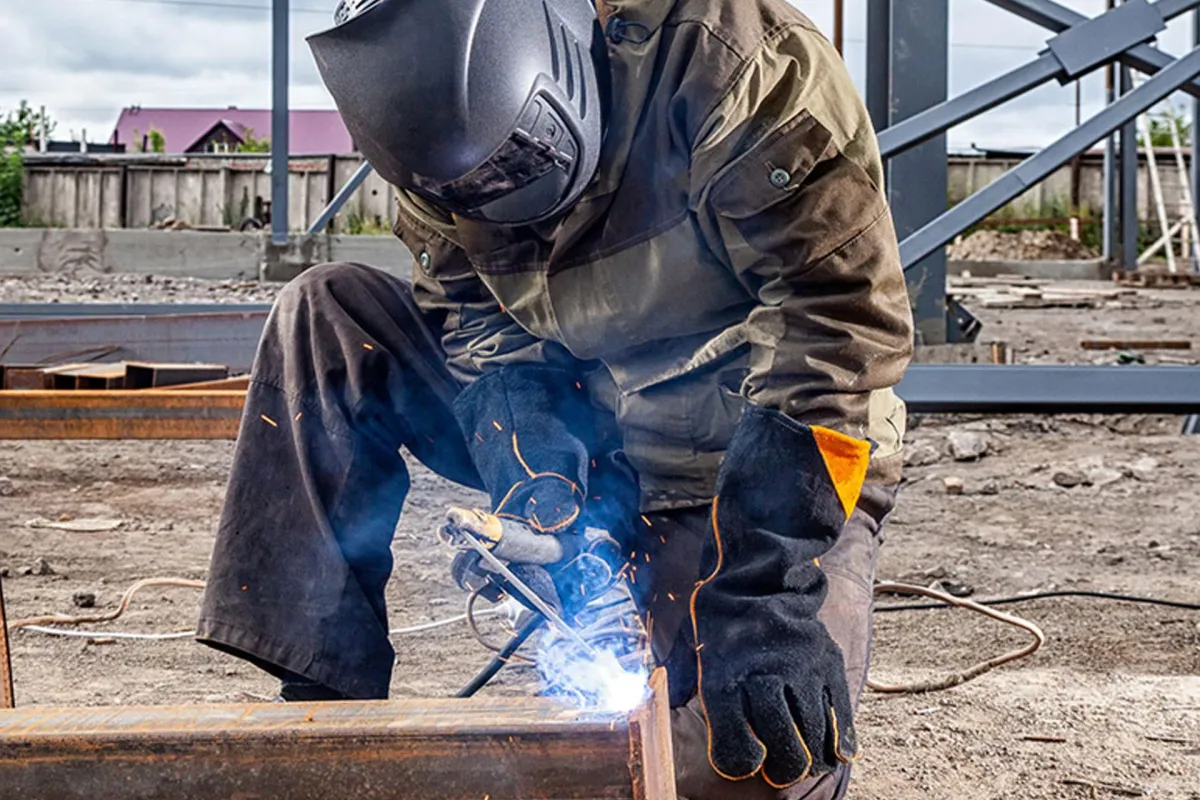blog

When to Call a Welding Pro After Equipment Breakdowns
Introduction
Equipment breakdowns can bring ranch work, industrial operations, and construction tasks to a halt. While some quick fixes can be handled on-site, many repairs require the precision and expertise of a welding professional to restore strength, alignment, and safety. Knowing when it’s time to call a welding pro helps prevent minor damage from becoming major downtime.
Understanding What Counts as a Breakdown
Not every stalled machine or bent component is the same. A breakdown refers to failure that prevents equipment from performing safely or effectively. This can include cracked frames, damaged brackets, broken welds, misaligned components, or stress failures caused by heavy use and vibration. The sooner the issue is evaluated, the easier it is to prevent further damage.
Signs You Should Call a Welding Professional
Some issues are early warnings that equipment needs expert repair. Recognizing these signs helps avoid full structural failure.
• Welds that show cracking, separation, or hairline fractures
• Components that no longer sit straight or hold alignment
• Sudden rattling, flexing, or sagging in load-bearing parts
• Equipment that bends or twists under pressure
• Repeated failure in the same spot after previous fixes
When Small Repairs Can Still Be Done On-Site
Minor repairs often involve reinforcement rather than full rebuilds. Examples include stabilizing brackets, re-welding guards, reinforcing hinges, or tightening stress points. These repairs work best when the damage is limited and access to the area is safe for welding.
When You Should Not Try to Fix It Yourself
Some situations require professional welding immediately because improper repairs can compromise equipment safety or structural integrity.
Any weld involving load-bearing or weight-support components
Cracks that extend across multiple stress points
Damage caused by bending, twisting, or frame warping
Repairs near hydraulic or fuel lines
Equipment used for towing, hauling, or lifting
Why Timely Welding Repairs Matter
Waiting too long to repair can cause failures to spread.
When a crack or break continues to flex under pressure, the surrounding metal weakens. Over time, this turns a small crack into a costly structural rebuild. Early welding repairs minimize downtime, preserve the original frame, and prevent additional failures in connected parts.
How a Welding Pro Evaluates Equipment Damage
A qualified welder doesn’t just fix the visible break—they look at the entire structure to understand how and why the failure happened.
• Assessing material thickness and metal type
• Checking joint alignment and load distribution
• Inspecting surrounding welds and stress zones
• Determining whether reinforcement or redesign is needed
This evaluation ensures the repair supports real-world use rather than just patching the surface problem.
Examples of Equipment Repairs That Benefit from a Welding Pro
Many field failures are best handled by a professional to restore strength and function.
• Trailer gate or ramp hinge failures
• Loader bucket cracks, especially at corner stress points
• Broken cattle panel or corral joints
• Bent implement frames or utility mounts
• Skid-steer attachment plate separation
Frequently Asked Questions
Can I continue using equipment after spotting a small crack?
No. Even small cracks can expand quickly under load and lead to sudden failure.
How long does an on-site welding repair take?
Most repairs take from 30 minutes to a few hours depending on accessibility and severity.
Is reinforcement better than replacing the part?
Reinforcement often extends lifespan and maintains original alignment, especially if the part is still structurally sound.
Will the repaired area be as strong as before?
Yes, when joint preparation, filler selection, and weld penetration match the original material strength.
Do welding repairs always require grinding and prep?
Yes. Proper prep ensures full fusion and prevents failure from returning in the same location.
Conclusion
Calling a welding professional early prevents small equipment failures from turning into costly breakdowns. By addressing cracks, misalignment, and stress wear before they spread, equipment stays safe, reliable, and operational. Knowing when repairs require a specialist keeps work moving and protects the long-term performance of your machinery.
Our Services
Helpful Links
Contact Information
5734 W Old Yellowstone Hwy Casper WY 82604
Business Hours
Mon - Sun 8:00 am - 5:00 pm
with 24/7 call-out services
© 2025 All Rights Reserved | Frontier Welding & Fabrication, LLC
